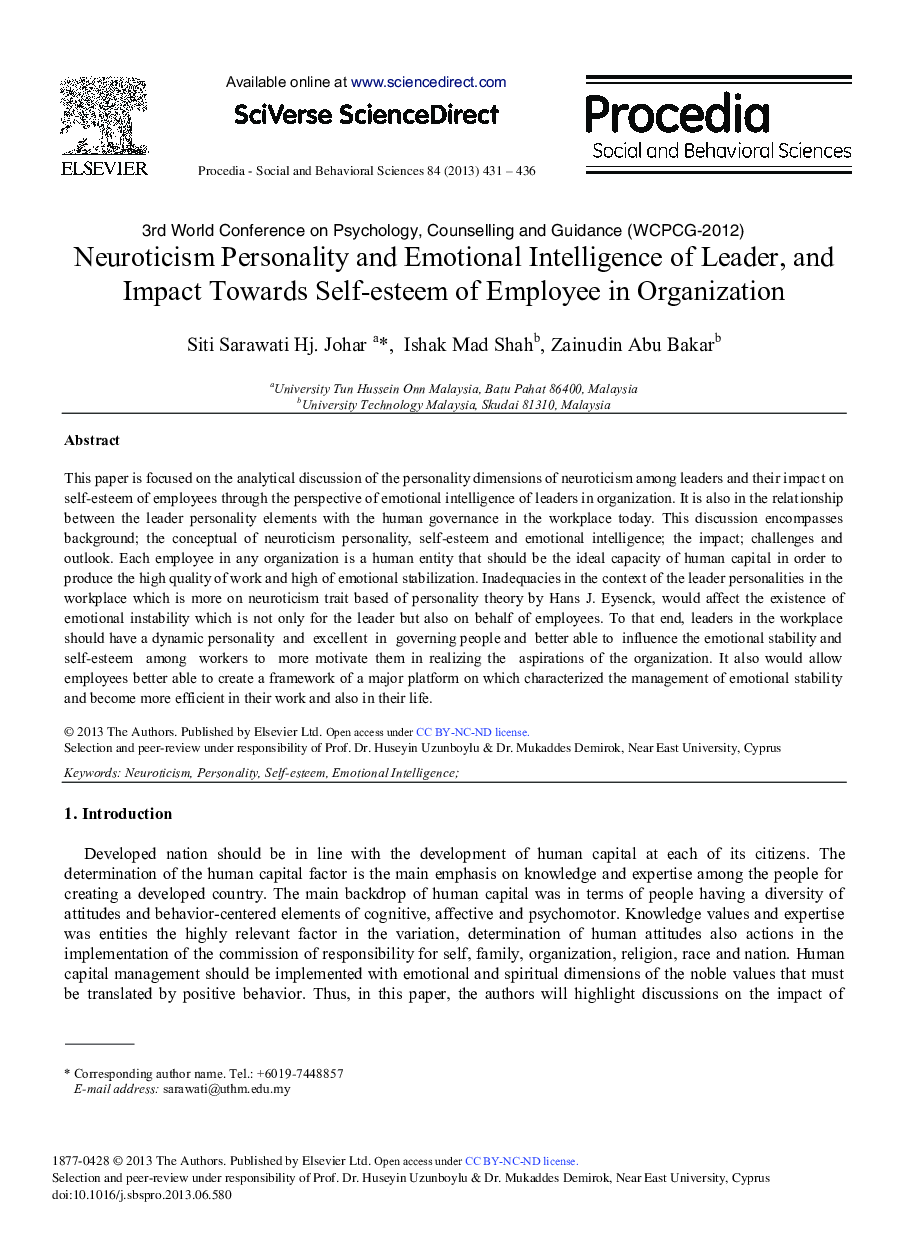| کد مقاله | کد نشریه | سال انتشار | مقاله انگلیسی | نسخه تمام متن |
|---|---|---|---|---|
| 1117528 | 1488475 | 2013 | 6 صفحه PDF | دانلود رایگان |

This paper is focused on the analytical discussion of the personality dimensions of neuroticism among leaders and their impact on self-esteem of employees through the perspective of emotional intelligence of leaders in organization. It is also in the relationship between the leader personality elements with the human governance in the workplace today. This discussion encompasses background; the conceptual of neuroticism personality, self-esteem and emotional intelligence; the impact; challenges and outlook. Each employee in any organization is a human entity that should be the ideal capacity of human capital in order to produce the high quality of work and high of emotional stabilization. Inadequacies in the context of the leader personalities in the workplace which is more on neuroticism trait based of personality theory by Hans J. Eysenck, would affect the existence of emotional instability which is not only for the leader but also on behalf of employees. To that end, leaders in the workplace should have a dynamic personality and excellent in governing people and better able to influence the emotional stability and self-esteem among workers to more motivate them in realizing the aspirations of the organization. It also would allow employees better able to create a framework of a major platform on which characterized the management of emotional stability and become more efficient in their work and also in their life.
Journal: Procedia - Social and Behavioral Sciences - Volume 84, 9 July 2013, Pages 431-436